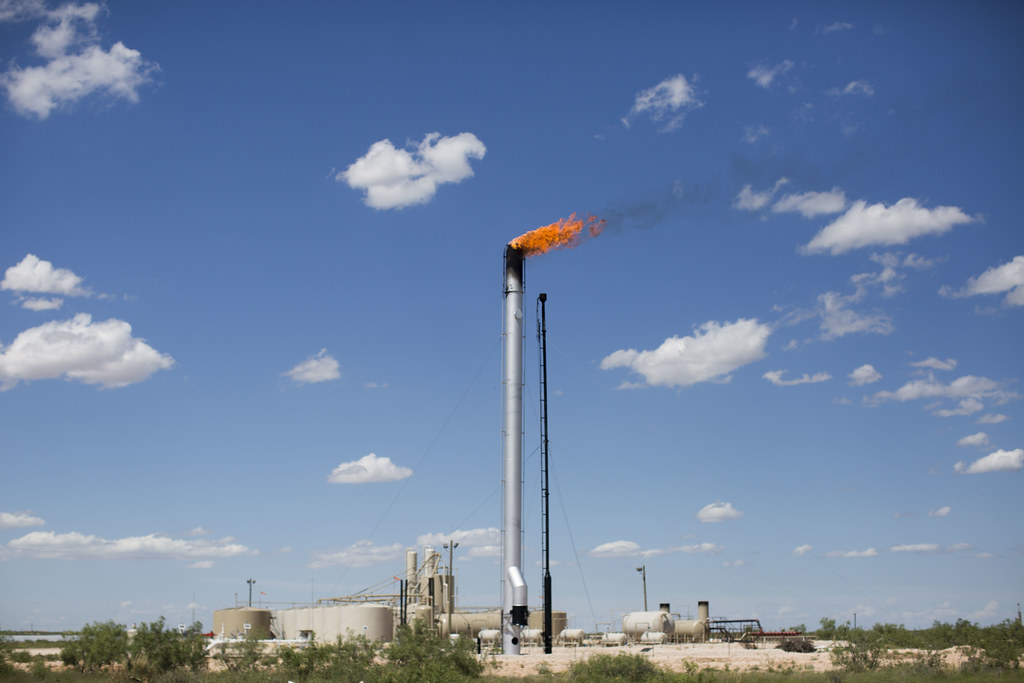In the mid 2010s, the Eagle Ford Shale in South Texas was among the most productive oil and gas fields in the world. Hydraulic fracturing, better known as fracking, allowed drillers to tap previously inaccessible fossil fuels, locked underground. But there was a cost. A new report shows a higher rate of premature births among mothers in the region who lived near sites where drillers burn off excess natural gas – what’s called flaring.
Lara Cushing is one of the authors of the study. She is an environmental health scientist at the UCLA Fielding School of Public Health. Cushing told Texas Standard host David Brown on Monday that while flaring has been suspected of having links to negative health consequences, no known studies had been done on the topic before the current work by UCLA scientists.
“Our goal with this study was to look at adverse birth outcomes,” Cushing said. “And what we found was… a higher rate of preterm births among mothers who lived within about three miles of a large amount of flaring activity.”
Cushing said preterm births are those that occur before 37 full weeks of pregnancy. Mothers within the three-mile radius had 50% greater odds of having a preterm baby than those who don’t live near sites where flaring takes place, Cushing said.
Though the cause of the early births wasn’t determined, Cushing said the burning of natural gas releases air pollutants that have been linked to premature birth. The study controlled for the amount of prenatal care mothers in the study areas received, their smoking habits and their education level.
“We can say with quite a bit of certainty that [control factors are] not the reason for the increased odds of preterm births for women living near flaring,” Cushing said.
Researchers found that Latina women were at greater risk for preterm births than were white women living in the area.
“We think it has something to do with structural racism and the way that structures opportunity, housing, education, occupation.”
Web story by Shelly Brisbin.















